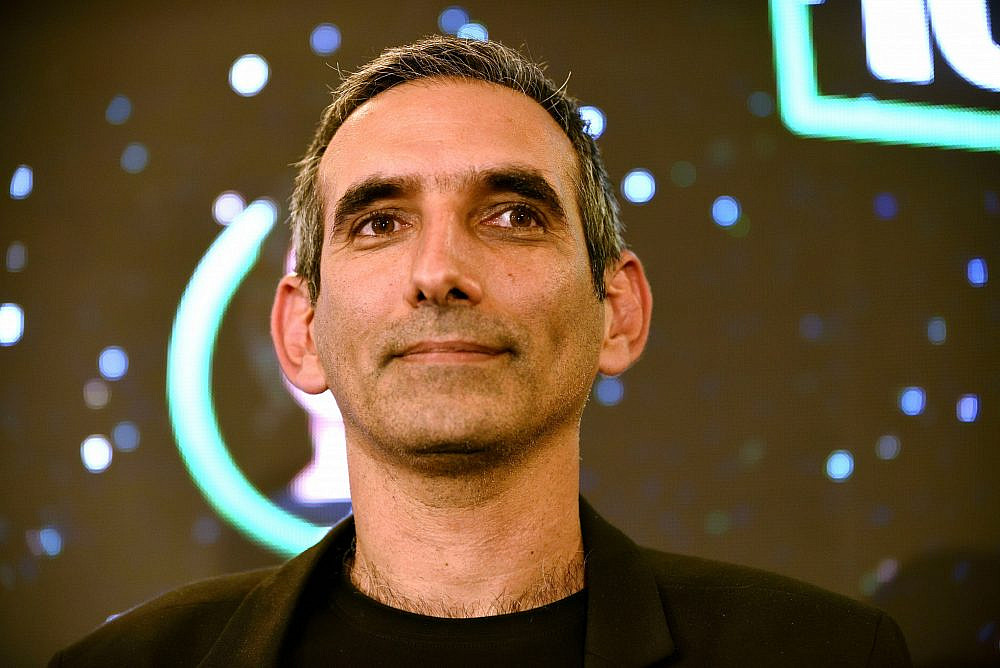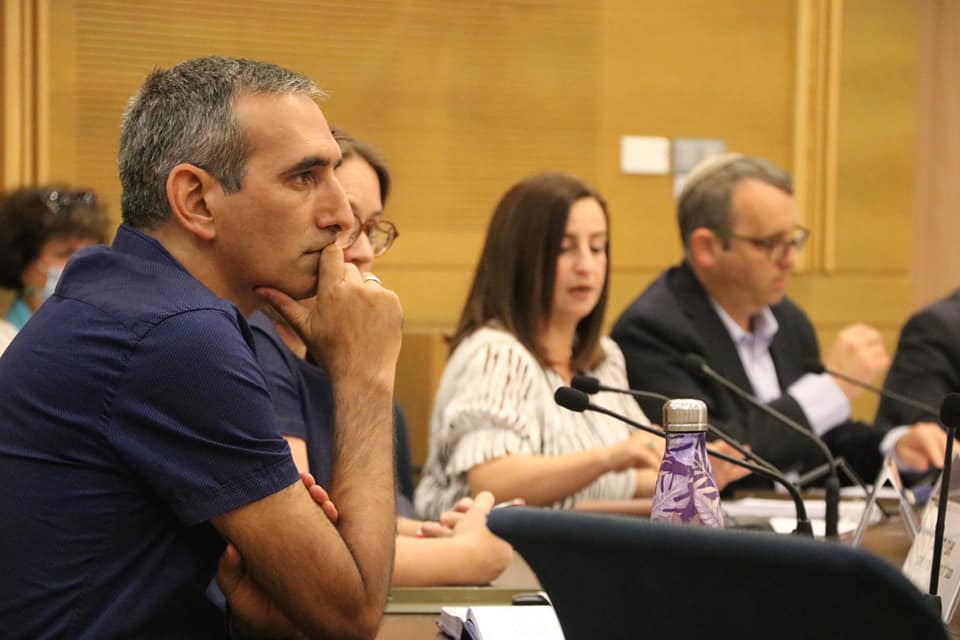When Avi Dabush was 26, he led a campaign against the building of a new coal unit in the power plant near his native city of Ashkelon. Located along the Mediterranean Coast, just north of Gaza, Ashkelon is known as a right-wing stronghold: in the last elections in March, Netanyahu and his Likud party received 40 percent of the votes in the city; Labor and Meretz together pulled just three. Environmental issues, like the one Dabush was working to promote, were associated with Tel Aviv’s left-wing elites. Standing in street corners handing out flyers, Dabush began to grasp the challenge he was facing. “Are you an Ashkenazi?” people shot back at him. “What matters for us is jobs.”
More than a decade later, Dabush was protesting again, this time calling to end Israel’s siege on the Gaza Strip. This time, reactions were even more hostile. “Who are you, to come here from Tel Aviv and preach to us?” drivers would shout at him, at times cursing or spitting.
“I would tell them that I live here in Sderot, and things calmed down,” Dabush recalls, referring to the Israeli town less than a mile away from Gaza, where he now resides, which falls in the immediate range of rockets fired from the strip. “At the same time, we were also attacked from the left, because our slogan was ‘real security is a negotiated solution.’ People said that security was a rightwing term.”
I met Dabush for the first time 10 years ago in a seminar for young professionals in progressive NGOs. Dabush was then working as a community organizer for the New Israel Fund. We shared a room. In the early mornings, when I got up to jog, Dabush prayed. At meetings, he spoke about Zionism and his religious beliefs.
Some years later, Dabush joined the Meretz party and launched its “periphery office,” intended to reconnect the Israeli left with the forgotten constituencies in rural neighborhoods. He recently left the party’s management, dismayed by what he considered as a disproportionate focus on Meretz’s “base” within the Israeli secular, upper-class, bourgeoisie living in the country’s social-geographic center. Since 2019, Dabush, now aged 45, has been the executive director of the NGO Rabbis for Human Rights.
The tension between left and right, observant and secular, Mizrahi and Ashkenazi, runs through a short book Dabush recently published. “The Periphery Rebellion” (Hebrew, Pardes Publishing House) is part analysis, part call to action, and part political memoir, focusing on the relations between Israel’s center and its periphery.
The book attempts to articulate a progressive agenda that aims not only to bring greater equality and advancement for the Jews and Arabs who were left behind during Israel’s high-tech boom, but also to introduce leftist ideas to new audiences, and ultimately serve other causes such as ending the occupation and the siege of Gaza. “If the periphery will not be part of the solution, it won’t work,” Dabush writes in his chapter on peace.
‘Atrocious neglect by the left’
I spoke with Dabush over a Zoom call about his book last week. The conversation repeatedly returned to the miscommunications between his family and friends in Sderot and Ashkelon on the one hand, and his colleagues and political partners in the center on the other.
After its poor showing in the 2015 elections with just five seats, “some people in Meretz were shocked and wanted to see why we were beaten so badly outside Tel Aviv,” Dabush recalls. “We brought some of them for a conversation here [in Sderot]. These were really the best people, open for change, but they kept saying things like ‘we just came to listen,’ and didn’t disclose their own views. At the end some locals told me: ‘we are not animals to be observed.’ There simply was no connection. This was another example that taught me that I need to be present here, that the conversation needs to begin here. It has to be local, not driven by outside forces.”
Let’s cut to the chase then: why does the Jewish periphery — and especially the Mizrahi periphery — vote right?
“I think the answer is threefold. There is the historical element, all those grandmothers who declare they vote for [the late Likud prime minister] Menachem Begin. Second, these people are simply more conservative, more religious, more patriotic, and today the right is considered more connected to Jewish tradition, while the left is the exact negative image. Netanyahu really played on this. And finally, I think there is this atrocious neglect by the left. When you have no office here, no activity, no local candidate, what do you expect?

“You can add all sorts of explanations. Some argue, for example, that under the Likud’s free market, a certain Mizrahi middle class emerged, so they felt that they managed to narrow the gap with the elites. But whatever you think, you need to start with field work here, and it simply doesn’t happen.”
And how does the conflict play into that?
“The Israeli stereotype of Sderot is of a place completely right-wing, in which everyone wants to destroy Gaza. It’s simply not true. People here, especially the older generation or those working in agriculture, have strong memories from Gaza.
“There is some ambivalence here. On one hand, there is this historical connection and the simple fact that, unlike in the center, groups in the periphery — Jews and Palestinians, secular and religious — meet one another at work and daily life. One the other, the people in the periphery are much more exposed to the effects of the conflict. It could be the rockets, or the Oslo Accords, or the suicide attacks. So it’s easier for them, I think, to be caught by right-wing populism.”
Can the Israeli left tap into this tension?
“The left is missing some real interest within the periphery toward the Palestinians and the Arabs in the region in general. You could see it in the Abraham Accords; I really didn’t like the contempt with which the left judged them. I saw people here expressing a lot of joy and hope after the accords were signed; even for me there is something in seeing an Israeli official speak Moroccan Arabic in Morocco. I might not like the tourist surge to Dubai, which is driven too much by consumerism, but you can’t deny that all those young Mizrahim who go there connect, in a very natural way, to Arab culture.
“A lot has changed since Oslo. The danger is that Israelis can now go on imagining their life continuing in the same way, without rights for the Palestinians. But with so much hatred and fear of Palestinians on the Israeli side, I think those cultural relations, those natural encounters, could mean something. So why not use the accords and tell people, in the same way you travel to Dubai, imagine going to Ramallah?”
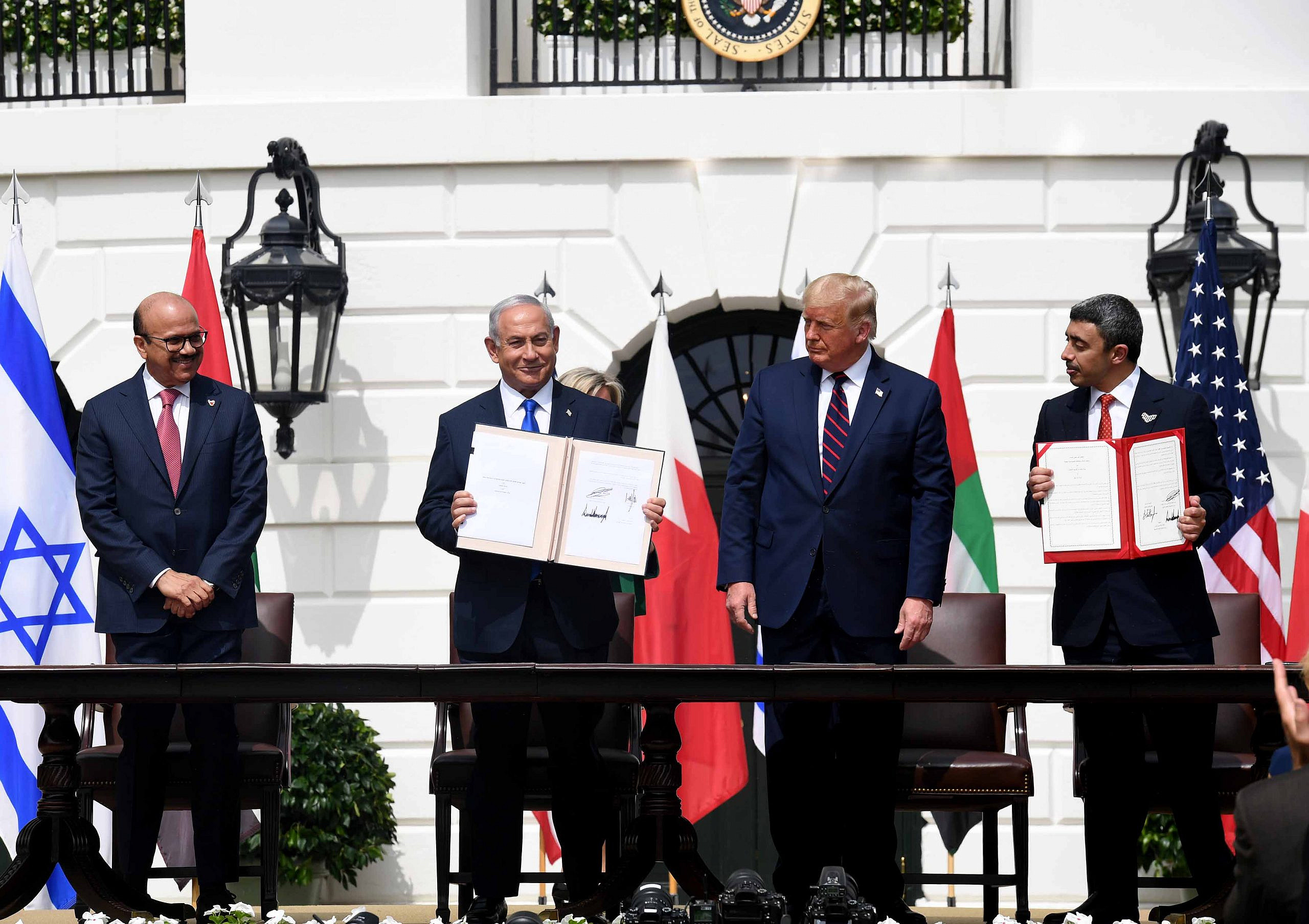
What would you do differently, in terms of promoting leftist politics in the periphery?
“Start by simply being here. Talk, act. This is the first step in politics, no? Focusing only on your base is an act of despair.
“I can see where it comes from. In 2015, I went with Meretz people to Sderot and Ofakim [right-wing strongholds in the south], and I was berated by the [party] campaign, saying it won’t bring us new voters immediately. This is true, but if you are a serious political movement and you want to get back to power, you need to start somewhere. Be here and cultivate your local leaders. It would take time, but that’s the only way to go.”
Today, Dabush is focused on building a “rabbinical camp” for his kind of activism through his NGO. “In some ways, we are an organization that walks this line we spoke of. We combine social justice issues — like our legal rights center for people from the weakest socio-economic background — with direct involvement in the West Bank, especially through our efforts to escort and protect Palestinian farmers. We also have an educational arm, working especially with youth.
“We try to ask what Judaism is. Are human rights and Judaism at odds with each other, or are human rights at the heart of Judaism, from the moment Abraham argues with God on the fate of Sodom and Gomorrah?”
‘My kids find it hard to believe we had friends in Gaza’
Dabush was born to a family from Damascus, Syria on his mother’s side, and Tripoli, Libya on his father’s. Both his parents settled in Ashkelon in the 1950s. “I grew up in a Sephardic, right-wing family that idolized Begin and voted for the National Religious Party. This was considered the ‘right vote’ for observant people. It was less of a party of the settlements back then, and voting for it had to do with religious education, with tradition.”
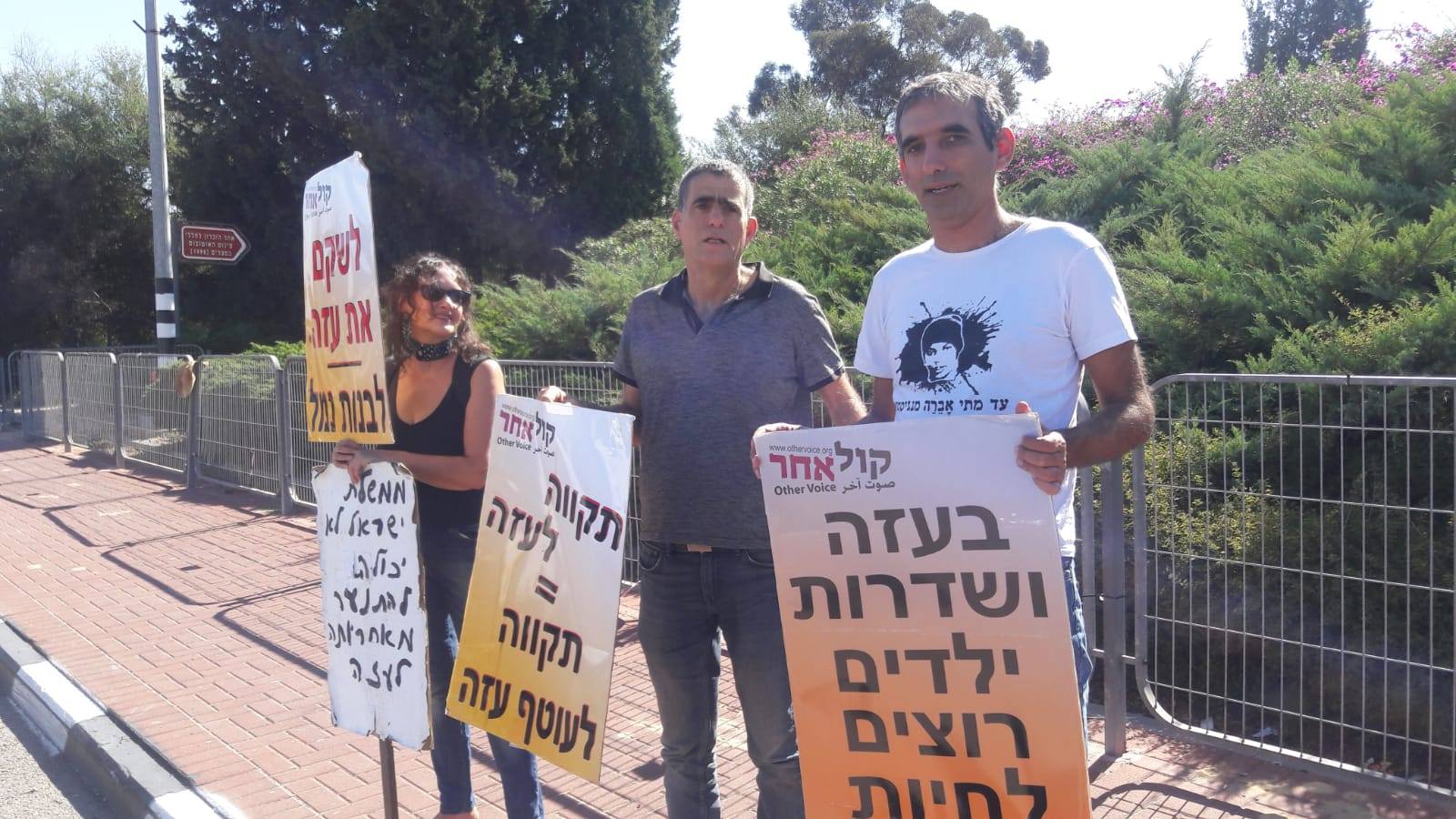
Dabush was educated in religious schools, but the real political indoctrination, he remembers, was at the religious Bnei Akiva youth movement. “In Bnei Akiva, it was clear that we were connected to the National Religious Party, and later, that we should oppose the Oslo Accords and mobilize for this fight.
“I took part in protests. I even volunteered for the campaign against leaving the Golan Heights [as part of a peace treaty with Syria, which was being negotiated at the time]. That’s where my right-wing ideology began to crack. I felt uncomfortable with this political battle, which was becoming violent, and with the complete erasure of the Palestinian people.”
How do you explain this shift you experienced?
“I think this change partly came from my home, which was pretty moderate and believed in ‘Ahavat Adam’ (the love of all people), and partly from the connections we had to Gaza. Until the First Intifada, Gaza was the big city next to us. We didn’t use the term ‘Palestinians’, and there was nothing political about it. If anything, people felt we were being nice to the people of Gaza, shopping there or giving them old clothes, but nevertheless there was something about the natural way we went there which stayed with me.”
Dabush began voting for the Israeli left and also took off his kippa — the only one to do so in his extended family (he continues to observe, though, and currently engages in rabbinical studies). In 2014, during Israel’s military operation in Gaza, Dabush was one of the founders of “Future for the Western Negev” movement, a grassroots organization of Israelis living around Gaza calling for a negotiated end to the siege. “People on the left didn’t like the fact that we talked about security, but I think that any solution begins with security, for my kids and for the children of Gaza. After that we can speak about reconciliation.”
Years passed, and things remained the same…
“I remember a conversation we had after 2014 with political analyst Amit Segal, who predicted that the war won’t have an effect on the coming elections. It seemed absurd, but he was right. We failed. We failed to put Gaza on the agenda, and we failed to push the idea of replacing the wars with negotiations. So we ended up with another futile war.”
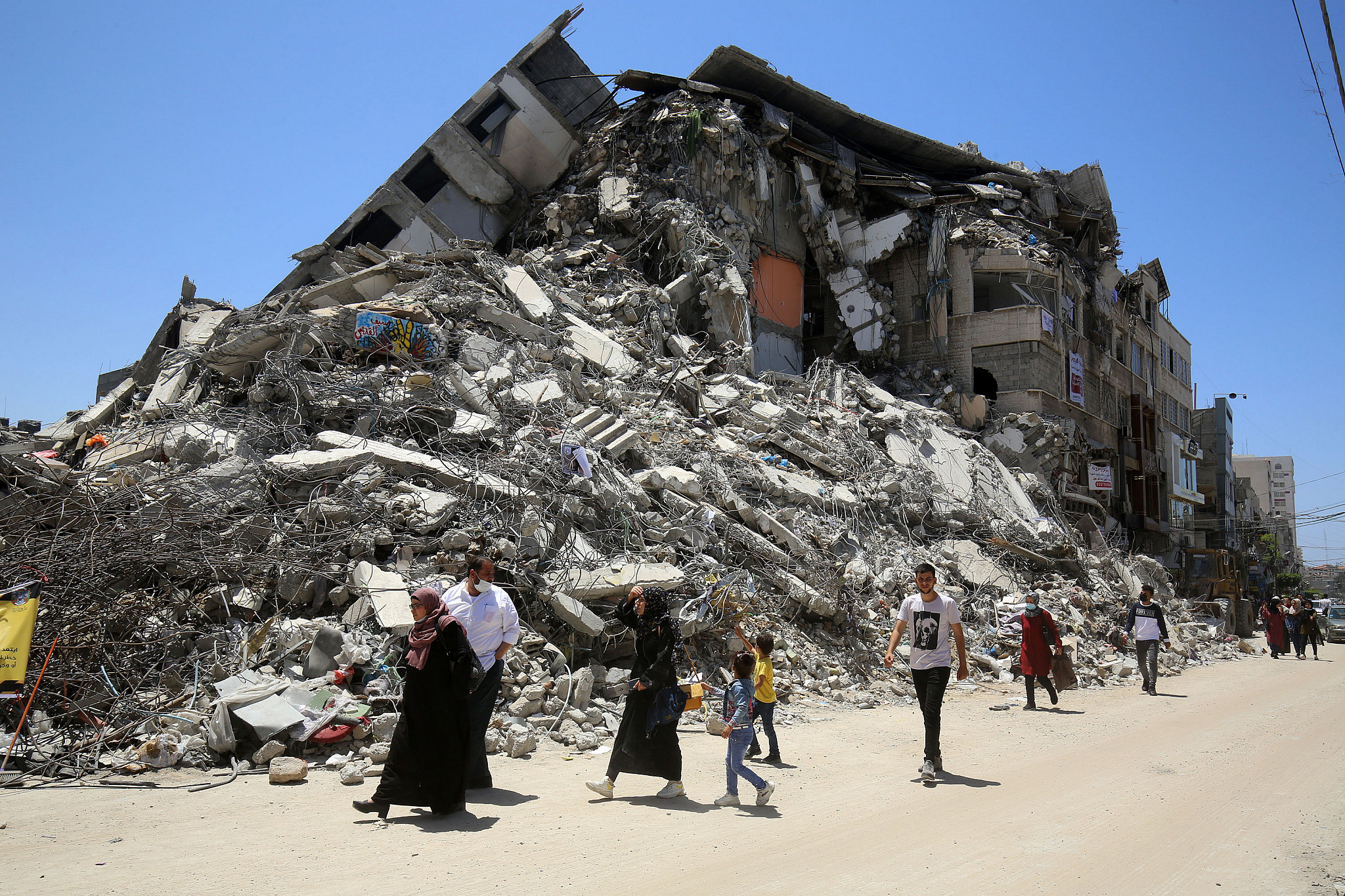
How did the 2021 military operation in Gaza make you feel?
“I was once on a TV panel right after a high-profile assassination of a Hamas leader, and the people at the studio said that it was a ‘game-changing blow.’ I couldn’t believe it. We went through this so many times. And once you exit the studio, those pundits tell you, ‘yes, I am for peace.’ Then why do you sit there and praise those assassinations? And my kids are sitting in the bomb shelter, and the kids in Gaza suffer, people getting killed just for us to end up in the same place? This is so frustrating!”
What sort of solution do you envision?
“I think we should end the siege, allow building a port there, allow them to work here… I think that we need to talk to Hamas, and I think that we should encourage the unification of the [Fatah-led] Palestinian Authority with Hamas, but if not then we should speak to Hamas alone. It doesn’t matter whether it’s a full deal or some long hudnah [“truce” or “armistice” in Arabic]. I don’t care if it’s a right-wing or leftist leader doing it: it needs to be done. When I tell my kids that I was in Gaza or that we had friends there, they find it hard to believe. Things have been going on this way for so long.”
Sometimes it seems to me completely unbelievable that the siege goes on, that the status quo of military operations continues for more than a decade.
“It serves the leadership, whether it’s Bibi or Bennett. They can go on claiming that peace is impossible. ‘We left Gaza and this is what we got,’ and so on, so we need to go on with the occupation of the West Bank. The people here are being sacrificed for the settlements.”
Correction: This article has been amended to reflect the fact that Avi Dabush remains a member of Meretz.


